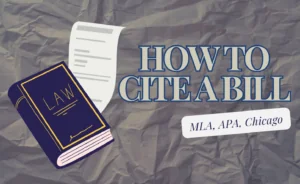When crafting an academic paper, the inclusion of diverse sources like movies can significantly enrich your research and argumentation. The key to using such a unique source effectively lies in understanding how to cite it properly. In this article, we will explore how to cite a movie in various academic styles, including APA, MLA, Chicago, Harvard, and Vancouver. Each of these styles offers a unique approach to citation, and knowing their nuances can greatly improve the credibility and professionalism of your work.

✅ AI Essay Writer ✅ AI Detector ✅ Plagchecker ✅ Paraphraser
✅ Summarizer ✅ Citation Generator
APA Style
The APA style, governed by the American Psychological Association, is predominantly used in social sciences. It emphasizes an author-date citation system. When citing movies in APA, the focus is on the director’s name, serving as the author, followed by the year of release. If it seems confusing, use a source finder.
In APA, the citation begins with the director’s last name and initials, followed by their role (usually as a director), the year of release in parentheses, the movie title in italics, and finally, the format in square brackets. The production company’s name concludes the citation.
Bibliography entry

In-text citation

MLA Style
The MLA style, preferred in the humanities, emphasizes the work rather than the author. It is managed by the Modern Language Association and features a format focusing on the title of the work.
An MLA movie citation starts with the film’s title (in italics), followed by “Directed by” and the director’s first and last name. If other significant contributors are mentioned, such as actors, their names follow the director’s, along with their roles. The production company and the release year are placed at the end.
Bibliography entry

In-text citation
In-text citations include the movie title and the time frame in minutes and seconds that you’re referring to in your paper.

Chicago Style
The Chicago Manual of Style is versatile, offering two citation methods: author-date and notes-bibliography. The latter is more suitable for non-conventional sources like films, particularly in the arts and humanities.
For the notes-bibliography method in Chicago style, the citation starts with the director’s name (first name followed by last name), followed by the title of the movie in italics. Then, include the production company and the release year. For the author-date system, the format is similar but starts with the last name and the first name.
Bibliography entry

In-text citation

Vancouver Style
The number-endnote scheme is used in Vancouver reference style. The sources are numbered in parentheses and correspond to the items in the document’s reference list. This means that each movie you cite has a unique number, and you use the same number when mentioning the same movie more than once.

Keep in mind that there are variations in Vancouver-style referencing, including the use of square brackets, parentheses, and numbers to link in-text citations with entries in the reference list. Consult your course materials or library guides to determine the preferred format. The key aspect is to keep your citations and references thorough and uniform across your entire document.
Conclusion
Citing a movie correctly in various academic styles is a crucial aspect of writing a well-researched paper. Whether you’re using APA, MLA, Chicago, Harvard, or Vancouver styles, understanding the specific requirements of each makes your work academically rigorous and respectful to the sources used. Accurate citations not only provide your audience with the necessary information to locate the original sources but also lend credibility to your scholarly work. Remember, attention to detail in citations reflects the overall quality of your academic writing.
FAQ
Follow us on Reddit for more insights and updates.





Comments (0)
Welcome to A*Help comments!
We’re all about debate and discussion at A*Help.
We value the diverse opinions of users, so you may find points of view that you don’t agree with. And that’s cool. However, there are certain things we’re not OK with: attempts to manipulate our data in any way, for example, or the posting of discriminative, offensive, hateful, or disparaging material.